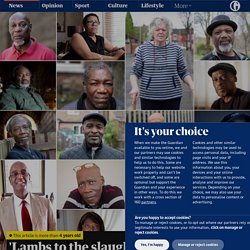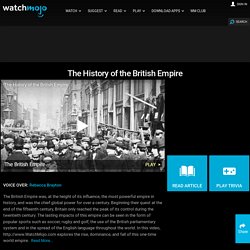

The Lonely Londoners: a new way of reading and writing the city. The Lonely Londoners is an iconic chronicle of post-war Caribbean migration to Britain.

Susheila Nasta explores how Samuel Selvon created a new means of describing the city by giving voice to the early migrant experience and capturing the romance and disenchantment of London for its new citizens. ‘One grim winter evening’, Moses Aloetta jumps on ‘a number 46 bus at the corner of Chepstow Road and Westbourne Grove to go to Waterloo to meet a fellar who was coming from Trinidad on the boat-train’.
As we accompany Moses, veteran black Londoner on his routine journey to welcome yet another newcomer into the fold, Selvon swiftly transports us into the tragicomic urban theatre of his fictional world. How The Lonely Londoners extends the novel's language. The Lonely Londoners is a milestone in English literature.

Or at least, it is if we are to believe its author Sam Selvon. He wrote in an essay in 1973: I think I can say without a trace of modesty that I was the first Caribbean writer to explore and employ dialect in a full-length novel where it was used in both narrative and dialogue. In a discussion with critic Michel Fabre, Selvon described the discovery of this voice as a breakthrough in a creative process that had been stalling:
Our Jamaican Problem (1955) The Windrush Generation: Why people invited to UK faced deportation. Finding My Family: A Windrush Special. 'Empire Windrush' ship arrives in UK carrying Jamaican immigrants (1948) Who are the Windrush generation? BBC pamphlet, Going To Britain? 'Lambs to the slaughter': 50 lives ruined by the Windrush scandal. Sarah O’Connor, died aged 57 ‘They made me feel like I’m not British’ One of the most vocal Windrush campaigners, O’Connor died in September 2018.

Officials mistakenly classified her as being in the country illegally, even though she had lived here for 51 years, since she was six. Unable to work, and not eligible for benefits, she had to sell her car and clothes. The scandal reminded her of the racism she faced in the 1970s. Windrush scandal. Young Tiger - I Was There (At the Coronation) Various: London Is the Place for Me: The Music of Young Black London, Vols 7 & 8 review – joyous blends. Creole languages and culture can be loosely defined as those that have been mixed: a natural blending of influences over time to create a new hybridity.

Much of this mixing has historically been a consequence of colonial oppression, and a response to unwanted and newfound circumstances. Yet through the trauma come new forms of resilience and creativity: these are the building blocks of Honest Jon’s London Is the Place for Me compilations. Charting the recordings of West Indians and west Africans in London following the first waves of immigration to Britain after the arrival of the Empire Windrush in 1948, the compilations provide a tantalising glimpse into changing musical cultures: Trinidadian steel bands performing at carnival, patois poetry and jazz-inflected calypso.
Volume 7 has a diverse mix of styles from calypso to Jamaican mento, west African palm-wine music and South American joropo. Guatemalan cellist Mabe Fratti delivers a subdued neoclassical debut, Pies Sobre la Tierra. Lord Kitchener - London Is Good Place For Me (Itw, Live Acapella) The History of the British Empire. Following Portugal and Spain’s lead in overseas exploration, King Henry VII of England began to commission voyages across the Atlantic.

Several unsuccessful attempts were made to create colonies along the North American coast under Queen Elizabeth I. It was in the early seventeenth century that, under the rule of King James I of England, the British Empire truly took a leap forward. The first permanent settlement in the Americas under English rule was Jamestown, founded in 1607. In the decades that followed, progressively more popped up along the coast and throughout the Caribbean. A series of wars with France and the Netherlands throughout the seventeenth and eighteenth centuries eventually left Britain as the dominant colonial power. John Agard - Windrush Child. Shameful Episode Aka Racial Riots. En Angleterre, même «Rule, Britannia!» ne parvient plus à unifier le pays. Rule Britannia, Britannia rule the waves.